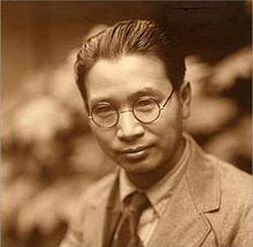
1 Kings 17 tells the story of how the prophet Elijah fled to the region of Sidon on the Palestinian coast during a great drought and famine in Israel. Elijah was led to the home of a poor widow and her son, and when Elijah asked for a little water and a small piece of bread the woman replied:
“As surely as the Lord your God lives,” she replied, “I don’t have any bread—only a handful of flour in a jar and a little olive oil in a jug. I am gathering a few sticks to take home and make a meal for myself and my son, that we may eat it—and die” (1 Kings 17:12).
Elijah told the woman that the God of Israel had promised that if she did as he asked, “The jar of flour will not be used up and the jug of oil will not run dry until the day the Lord sends rain on the land” (1 Kings 17:14). The woman complied and sure enough, after that meal and others there was still food every day for the woman and her son as well as Elijah, “For the jar of flour was not used up and the jug of oil did not run dry, in keeping with the word of the Lord spoken by Elijah” (1 Kings 17:16).
This situation must have continued for a while because the Bible reports, “Some time later the son of the woman who owned the house became ill. He grew worse and worse, and finally stopped breathing. She said to Elijah, ‘What do you have against me, man of God? Did you come to remind me of my sin and kill my son?’” (1 Kings 17:17). Elijah prayed over the young man and God restored the youth’s life. It is only then that the woman said to Elijah, “Now I know that you are a man of God and that the word of the Lord from your mouth is the truth” (1 Kings 17:24).
Are we like the Sidonian woman in so often missing the continuing everyday miracles of our lives and losing faith – despite those small miracles – when severe problems come on us? We read the story and wonder, “How could she not have noticed the ongoing miracle of the lasting flour and oil – especially when Elijah told her it would be so?” But would the woman read the story of our lives and wonder, in the same way, why we did not notice the things that were worked out for us and others around us?
Perhaps this is part of what the Prophet Isaiah referred to when he spoke the words quoted by Jesus: “You will be ever hearing but never understanding; you will be ever seeing but never perceiving” (Isaiah 6:9, Matthew 13:14). Certainly the “hearing” refers to hearing the word of God and not understanding it, but the “seeing and never perceiving” must surely refer to things we witness but simply do not grasp or see the significance they have for us.
Perhaps we should remind ourselves of the story of the woman of Sidon when we next face a difficult situation. Rather than fearing the lack of some large needed miracle when we need help, perhaps the way of faith is that we should remind ourselves of all the small miracles that brought us to the point where we are now. But it’s a question we can all ask ourselves at any time: what are the ongoing flour and oil in our lives – what are the small miracles that we are missing?









 RSS Feed
RSS Feed
